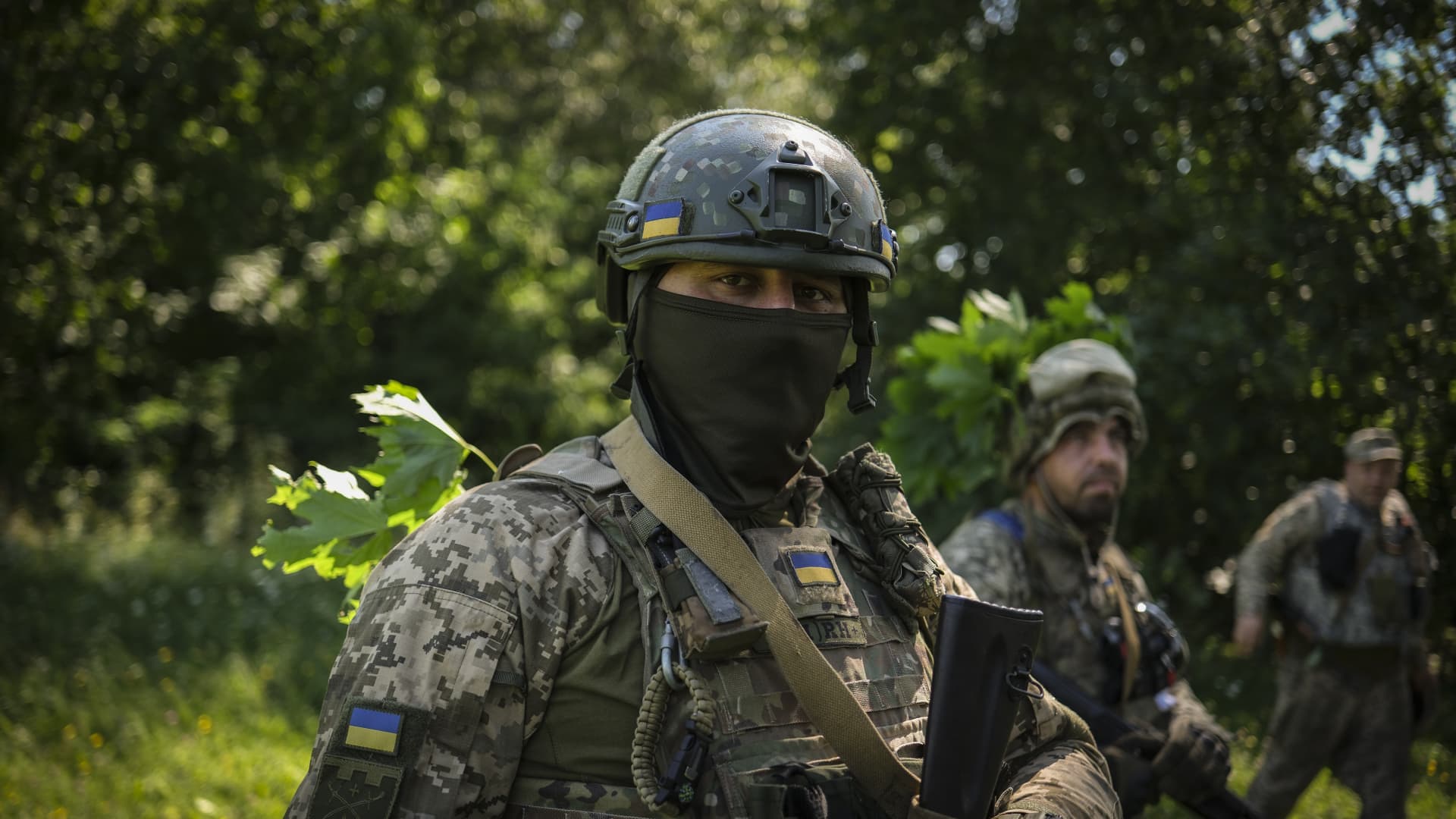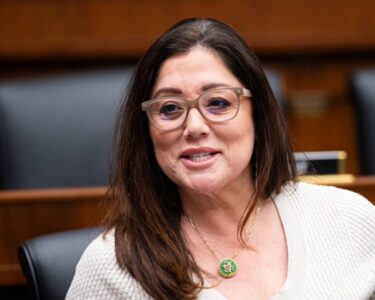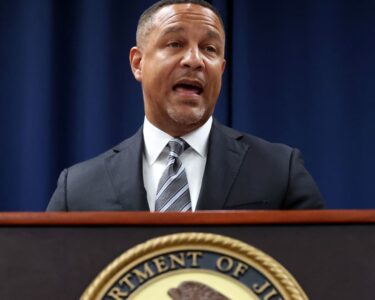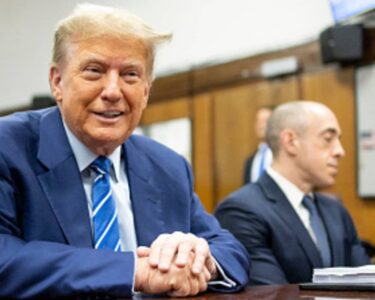This was CNBC’s live blog tracking developments on the war in Ukraine. See here for the latest updates.
The Ukrainian city of Kherson was blasted overnight, after President Volodymyr Zelenskyy said that air defense systems supplied by Germany and the U.S. were “very effective.”
Zelenskyy highlighted the IRIS-T and Patriot drones in his nightly address Sunday, and thanked all allies who had contributed resources to Ukraine’s defenses.
More than 40 countries came together over the weekend in Jeddah, Saudi Arabia, to discuss a possible formula for bringing a peaceful conclusion to Russia’s war in Ukraine. Delegations from the United States, China and India were present for the talks, which senior Ukrainian government official Andriy Yermak described as “productive.”
Meanwhile, Russia’s deputy foreign minister said the West’s efforts to mobilize the international community to support a peace deal are “doomed to failure,” according to state-owned media agency Tass.
Russia says a peace settlement in Ukraine is only possible if Kyiv lays down its arms, Russian foreign ministry spokeswoman Maria Zakharova said in a statement.
A solution to the conflict will only be found if the “the Kiev regime puts an end to military activities and terrorist attacks, while its Western sponsors stop pumping the Ukrainian armed forces with weapons,” Zakharova was quoted as saying by state news agency Tass, using the Russian transliterated spelling of Ukraine’s capital Kyiv.
“The original foundations of Ukraine’s sovereignty should be reaffirmed, that is, its neutral, non-aligned and nuclear-weapon-free status,” she said.
Russia launched a full-scale invasion of Ukraine in February 2022, which has since killed tens of thousands of people, turned several million into refugees, and caused tens of billions of dollars in damage to the country’s infrastructure, environment and industries.
— Natasha Turak
Mykhailo Podolyak, adviser to the head of the Ukrainian presidential office, said there can be no compromise measures with Russia as those could give it more time to entrench its forces’ positions in occupied territories.
“There can be no compromise positions such as ‘immediate ceasefires’ and ‘negotiations here and now’ that give Russia time to stay in the occupied territories,” Podolyak wrote on X, formerly known as Twitter. “Only the withdrawal of Russian troops to the 1991 border.”
He added that any compromise agreement would lead to prolonged war in the future. Some neutral countries have called for a compromise settlement between the warring parties that would see Ukraine cede a portion of territory to Russia; Kyiv has wholeheartedly rejected that, saying there will be no peace until Moscow withdraws from internationally-recognized Ukrainian land.
— Natasha Turak
Russia and Ukraine carried out the latest in a series of prisoner exchanges on Monday, with 22 Ukrainian soldiers returning home, a senior Ukrainian official said.
Andriy Yermak, the head of President Volodymyr Zelenskiy’s office, said the released servicemen included two officers, sergeants and privates who fought in different parts of the front. Some of them were wounded.
A video posted on Telegram showed soldiers wrapped in blue and yellow Ukrainian flags posing for pictures and shouting “Glory to Ukraine.”
— Reuters
Russia’s defense ministry says its forces advanced three kilometers (two miles) into Ukraine’s defenses over the last three days in northern Ukraine.
“Over the past three days, the advance of Russian troops … amounted to 11 kilometers along the front and more than three kilometers deep into the enemy’s defense,” the ministry said in a statement. It added that its positions along the front line had “improved.”
CNBC could not verify details on the ground. Russian forces are focusing their assault on areas like Kharkiv, which Ukraine had liberated from their occupation in September.
— Natasha Turak
Western microchips used to power smartphones and laptops are continuing to enter Russia and fuel its military arsenal, new analysis shows.
Trade data and manifests analyzed by CNBC show that Moscow has been sourcing an increased number of semiconductors and other advanced Western technologies through intermediary countries such as China.
In 2022, Russia imported $2.5 billion worth of semiconductor technologies, up from $1.8 billion in 2021.
Real the full story here.
— Karen Gilchrist
Germany will increase its guarantees for German companies investing in Ukraine, the economy ministry announced Monday.
Guarantees already covered property damage, but will now also cover conversion and transfer risks for interest payments on quasi-equity loans, which are often used to fund Ukrainian subsidiaries.
— Hannah Ward-Glenton
Weekend talks about a peace formula for Russia’s war in Ukraine helped “consolidate international consensus,” Reuters reported China’s Foreign Ministry as saying.
Delegates from more than 40 countries met in Jeddah, Saudi Arabia, to discuss the framework for a peaceful settlement of the war.
— Hannah Ward-Glenton
The war between Russia and Ukraine entered a new phase this summer when Kyiv launched its much-anticipated counteroffensive, and there were hopes Ukraine would regain the upper hand.
It’s become clear that the counteroffensive won’t produce quick results and that success — however that might be measured in terms of retaking Russian-occupied territory — is not guaranteed.
Military experts warn that this means the war is likely to be prolonged, putting immense pressure on Ukraine to fight for several more years to come, potentially, and on its international partners to commit billions of dollars more in military, humanitarian and financial resources.
Read the whole story here.
— Holly Ellyatt
The total cost of repairing the damage done by Russia in Ukraine adds up to around $1 trillion so far, President Zelenskyy’s economic advisor told CNBC on “Squawk Box Europe.”
Oleg Ustenko said the costs would need to be compensated by Moscow.
Reflecting on discussions in Jeddah over the weekend, Ustenko said nothing in Russia’s behavior has changed that would suggest a peaceful conclusion to the war is on the horizon, adding that Russia is getting more aggressive.
“Russians are getting more and more aggressive, and the more aggressive they are getting the more negative consequences we are getting for our economy,” he said.
“They are very much interested [in continuing] the war,” he added.
— Hannah Ward-Glenton
Russian President Vladimir Putin is set to visit Turkey in the last week of August, state media outlet Tass reported, according to a Google translation. The abandoned grain deal, bilateral ties and Syria are on the agenda.
Turkish President Recep Tayyip Erdoğan announced the visit in a joint press conference with Putin on July 10.
— Hannah Ward-Glenton
Ukrainian President Volodymyr Zelenskyy praised air defense systems given to Ukraine as “very effective” in his nightly address Sunday.
Zelenskyy named Patriot and IRIS-T drones in particular, which were donated to Ukraine’s war efforts by the U.S. and Germany. The president said he was grateful to every country that had supplied the country with the systems, as they had yielded “significant results,” according to the English subtitles of the address.
Russian military forces used 65 different missiles in 178 drone attacks against Ukraine, according to Zelenskyy, of which Ukraine was able to shoot down a “significant number.”
CNBC is unable to independently verify these figures.
— Hannah Ward-Glenton
Ukrainian officials said diplomatic talks in Jeddah, Saudi Arabia, were “productive,” according to a Google translation of a Telegram post. Delegates from more than 30 countries were in attendance.
Andriy Yermak, who represented Ukraine at the bilateral talks, said discussions revolved around creating a peace formula for Ukraine, looking at factors such as defense, security guarantees, investment and the grain agreement.
Meanwhile Russia’s deputy foreign minister said the West’s efforts to mobilize the international community to support a peace deal are “doomed to failure,” according to state-owned media agency Tass.
He said the West was using “its usual sly and deceitful manner” to garner support for a peace formula from the Global South.
Senior officials from countries including the United States, China, India and Germany gathered over the weekend to try to agree on the key principles necessary for a peaceful end to Russia’s war in Ukraine.
— Hannah Ward-Glenton
One woman was killed in an overnight airstrike over Kherson in Ukraine, a senior Ukrainian official said in a Google-translated post on Telegram.
Andriy Yermak said a nine-story building was struck in the attack.
CNBC was unable to independently verify this information.
— Hannah Ward-Glenton
Ukrainian forces blew up a large Russian oil tanker transporting fuel for Russian troops, NBC News reported Saturday, citing Ukrainian security service sources.
Kremlin officials confirmed a vessel had been hit by a Ukrainian drone in the Kerch Strait.
On Saturday, Ukraine’s Defense Ministry wrote on social media site X, formerly known as Twitter, that “there are no more safe waters or peaceful harbors” for Russian forces in the Black or Azov seas.
— Hannah Ward-Glenton






